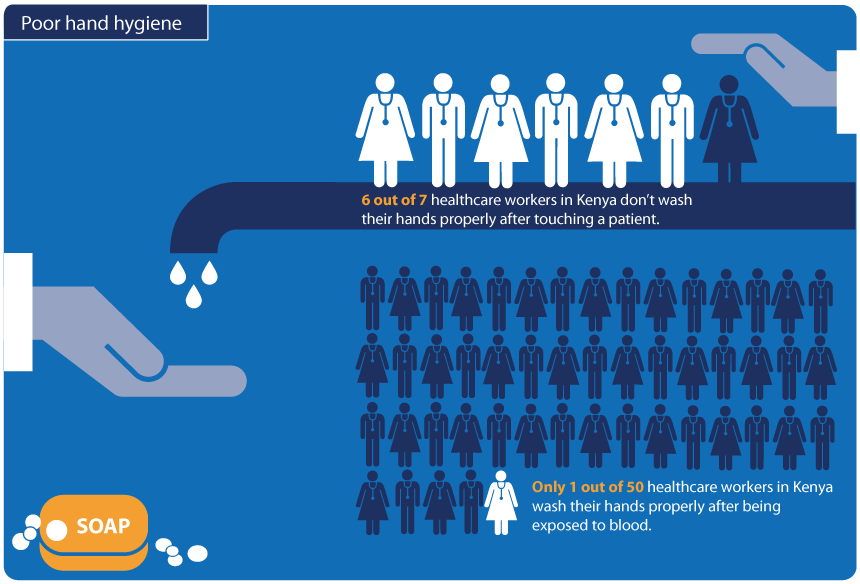By Trudy Mbaluku
When a health facility lacks basic sanitation items like soap, running water and sanitizers, patients are more likely to pick new infections.
A study by the Center for Disease Control and Prevention reveals that six out of seven medical personnel do not wash their hands properly after touching a patient. This increases the likelihood of a patient acquiring a new disease during a visit to the doctor.
“Cases of patients being discharged from hospitals only to return after two weeks with a new infection may be attributed to such patients contracting the infections in the hospital environment,” says Dr Ndegwa the Infection Control Programme Manager at Center for Disease Control and Prevention.
Washing hands with soap, clean water or thoroughly rubbing hands with a sanitizer, which contains 60 percent alcohol, prevents disease causing germs from spreading from patient to patient or healthcare provider to patients and vise versa.
“It is embarrassing that such a simple but life saving practice is not popular. He attributes cases of patients being infected in hospital to inadequate items such as antimicrobial soaps, clean running water and hand sanitizers, says Ndegwa.
Further, according to the study titled: The deadly combination of antibiotic resistance and lapses in infection control in resource poor setting , only one in 50 healthcare workers wash their hand after blood fluid exposure compromising the health of the patient.
To comply with basic infection control measures a health facility should have adequate soap and running water or disinfectant, sharp boxes for disposing off used syringes and surgical knives and latex gloves in all treatment areas.




